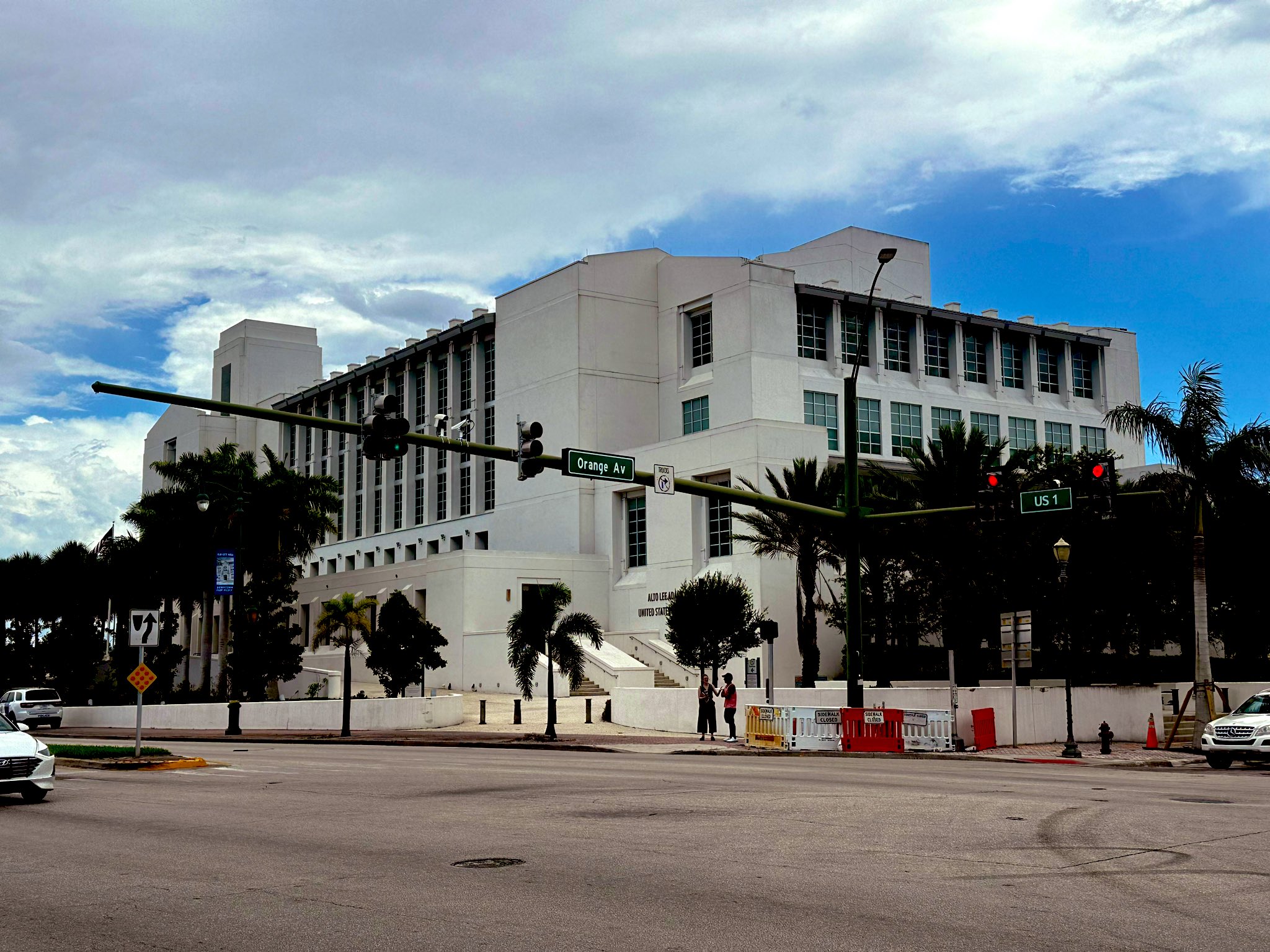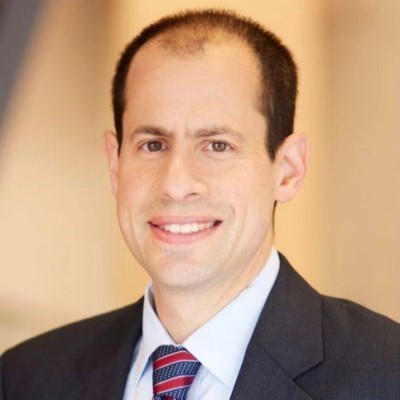Judge Cannon Should Have Stuck to the Beaten Path

Published by The Lawfare Institute
in Cooperation With

Editor’s Note: This article is an adaptation of the author’s article on Substack.
On July 15, 2024, Judge Cannon granted Donald Trump’s motion to dismiss the indictment against him, holding that the appointment of Trump’s prosecutor, Jack Smith, was not authorized by statute.
I admire Judge Cannon’s opinion, which is well-written, thoughtful, and thorough. Contrary to some of the commentary I’ve read, it’s not a crazy opinion at all. That said, I disagree with the ruling and hope it is reversed by the 11th Circuit.
All It Takes Is One
On Nov. 18, 2022, Attorney General Merrick Garland appointed Jack Smith to serve as special counsel in charge of prosecuting Trump. The question before Judge Cannon was whether a federal statute authorized that appointment.
Article II, Section 2, Clause 2 of the Constitution, aka the Appointments Clause, says that the president
shall nominate, and by and with the Advice and Consent of the Senate, shall appoint … Officers of the United States, whose Appointments are not herein otherwise provided for, and which shall be established by Law: but the Congress may by Law vest the Appointment of such inferior Officers, as they think proper, in the President alone, in the Courts of Law, or in the Heads of Departments.
Attorney General Garland is a “Head of Department.” Smith contends he is an “inferior Officer.” If that’s so, then Attorney General Garland had the authority to appoint him—but only if “Congress,” “by law,” “vest[ed] the Appointment” in the attorney general. Translated into English, there has to be a federal statute that authorized Attorney General Garland to appoint Smith.
Trump moved to dismiss the indictment, arguing that no such statute existed. Judge Cannon agreed with Trump and dismissed the indictment.
I don’t agree. Smith makes four strong arguments that he is authorized to initiate this prosecution. These arguments are as follows:
- 28 U.S.C. § 515(b) authorized Smith’s appointment.
- 28 U.S.C. § 533(1) authorized Smith’s appointment.
- 28 U.S.C. § 510 authorized Smith’s appointment.
- The Supreme Court decided 50 years ago that Smith’s appointment was authorized.
Any one of these arguments would be sufficient to prevail. Judge Cannon should not have rejected all of them.
Option 1: Section 515(b)
Let’s start with Judge Cannon’s explanation of why 28 U.S.C. § 515(b) does not authorize Smith’s appointment. Here’s what the statute says:
(b) Each attorney specially retained under authority of the Department of Justice shall be commissioned as special assistant to the Attorney General or special attorney, and shall take the oath required by law. Foreign counsel employed in special cases are not required to take the oath. The Attorney General shall fix the annual salary of a special assistant or special attorney.
On its face, this statute is not entirely clear on whether the attorney general has the authority to appoint Smith. On the one hand, it refers to an attorney being “specially retained under authority of the Department of Justice” and serving as “special assistant to the Attorney General.” This implies that the attorney general has the power to specially retain an attorney to serve as a special assistant.
On the other hand, the statute doesn’t say anything about appointments, and it doesn’t say anything about officers. Also, it seems to be talking about attorneys who have already been “specially retained under authority of the Department of Justice,” rather than affirmatively granting authority to specially retain an attorney.
In short, the question is this: Can a lawyer be “specially retained” without having already been “specially retained”? Given the ambiguity in the text, a court should look at the statute’s history—and Smith has three strong historical arguments in his quiver.
First, when the original version of this statute was enacted in 1870, it wouldn’t have made sense unless Smith’s interpretation is correct. Here is what it said at the time:
And every attorney and counse[l]or who shall be specially retained, under the authority of the Department of Justice, to assist in the trial of any case in which the government is interested, shall receive a commission from the head of said Department, as a special assistant to the Attorney-General, or to some one of the district attorneys, as the nature of the appointment may require, and shall take the oath required by law to be taken by the district attorneys, and shall be subject to all the liabilities imposed upon such officers by law.
This statute refers to a “special assistant to the Attorney-General.” In 1870, no other statute existed that would have authorized the appointment of a special assistant to the attorney general. Thus, Smith’s argument goes, the “specially retained” language must have been intended to confer that authority.
Second, the circumstances surrounding the enactment of § 515(a) strongly support Smith’s argument. In 1903, a federal district court in United States v. Rosenthal concluded that a special assistant to the attorney general didn’t have statutory authority to obtain indictments before a grand jury. In 1906, Congress responded to Rosenthal by enacting the statute currently codified at § 515(a), which explicitly authorizes specially-appointed attorneys to conduct grand jury proceedings.
I’m normally skeptical of congressional ratification arguments, but this is an unusually good one. The 1906 amendment giving rise to what’s now § 515(a) presupposes that § 515(b) authorizes the attorney general to hire special assistants and expands the scope of the special assistant’s authority. It would be weird for a court to hold, 118 years later, that actually, the authority that Congress assumed to exist doesn’t exist.
Third, attorneys general have repeatedly appointed special prosecutors over the years. As the Rosenthal case makes clear, attorneys general were appointing special assistants as far back as the Theodore Roosevelt administration. Fast-forwarding, there’s also Leon Jaworski, who was appointed special prosecutor to investigate Watergate in 1973, as well as Robert Mueller, who was appointed special counsel to investigate Russian election interference in 2017. If Smith’s appointment is illegal, then all of these appointments would have been illegal, too.
As I see it, these points, taken together, are a strong basis to interpret the ambiguous words of § 515(b) in Smith’s favor.
But Judge Cannon reaches a contrary conclusion. The bulk of her analysis focuses on the literal meaning of § 515(b). She holds that “Section 515(b), read plainly, is a logistics-oriented statute that gives technical and procedural content to the position of already-‘retained’ ‘special attorneys’ or ‘special assistants’ within DOJ.”
Judge Cannon has a reasonable argument based on the text—but Smith does, too. History is the tiebreaker.
To her credit, Judge Cannon addresses Smith’s historical issues head-on. She points out, for example, that many prior appointment orders didn’t cite § 515(b), and some of them didn’t cite any statute at all. Also, many, perhaps most, prior special counsels were appointed from within the government and had less power than Smith.
Perhaps so. But regardless of what their appointment orders said, where they were hired from, or how much power they had, the attorney general couldn’t have retained them as special counsel unless he had the statutory authority to do so. Judge Cannon’s view is that § 515(b) gives the attorney general no power to “specially retain” someone, which I think is incompatible with a fair number of historical examples—a point that tips the scales in Smith’s favor.
Option 2: Section 533
Judge Cannon also rejects Smith’s argument that his appointment was authorized under 28 U.S.C. § 533. This statute says, in relevant part:
The Attorney General may appoint officials—
(1) to detect and prosecute crimes against the United States;
(2) to assist in the protection of the person of the President; and
(3) to assist in the protection of the person of the Attorney General.
(4) to conduct such other investigations regarding official matters under the control of the Department of Justice and the Department of State as may be directed by the Attorney General.
Smith’s textual argument based on § 533 is both simple and strong. First, Jack Smith is an “official.” He’s doing official things. He’s certainly not doing unofficial things. They’re official things. Second, Jack Smith is a prosecutor. He’s “prosecut[ing] crimes against the United States.” Therefore, under 28 U.S.C. § 533(1), Attorney General Garland had the power to appoint him.
Judge Cannon disagrees. In her view, because Smith is an “inferior officer” under the Constitution, § 533 must authorize the appointment of “officers.”
But the statute doesn’t say “officer.” It says “official”—which, in Judge Cannon’s view, encompasses a broader range of people than “officer.” According to Judge Cannon, “[W]hile all officers may be officials, not all officials are officers.”
But even if that’s so, the fact that “officials” is a really broad term helps, rather than hurts, Smith’s argument. Jack Smith is definitely an official, so § 533, viewed literally, gave the government the authority to appoint him.
Judge Cannon contends that in context, the statute says “officials” rather than “officers” because it’s referring only to non-officer “officials” who work in law enforcement—meaning they “detect and prosecute crimes.” Judge Cannon offers a series of contextual arguments in support of this view. For instance, she points out that subsections (2) and (3) refer to law enforcement personnel, and the statute is placed in the portion of the U.S. Code dealing with the FBI.
Judge Cannon is probably right about Congress’s intent. Indeed, her argument regarding Congress’s intent might be even stronger than she lets on. As a recent, thoughtful article by Adam Flaherty and Daniel Listwa explains, § 533’s predecessor statutes were appropriations provisions authorizing federal money to be spent on law enforcement officials—a far cry from the attorney general appointing a special counsel to prosecute the former president.
But in the end, I’m sticking with Team Text. “Prosecution of crimes” encompasses people who prosecute crimes.
There is a strong philosophical case for construing statutes literally. Easy-to-understand decisions grounded in the English language are most likely to achieve legitimacy across citizens of divergent political views. Perhaps there is no way, in a case like this one, that a judge could make a decision that will persuade citizens on both sides of the political spectrum. But if such a decision were possible, it would be a decision that said, “Jack Smith is an official person who prosecutes, and I’m not going to consider anything else because that’s what the words on the page say.”
Option 3: Section 510
Judge Cannon also rejects Smith’s argument that a third statute—28 U.S.C. § 510—authorized his appointment. Section 510 says: “The Attorney General may from time to time make such provisions as he considers appropriate authorizing the performance by any other officer, employee, or agency of the Department of Justice of any function of the Attorney General.”
Judge Cannon points out that this provision authorizes the reassignment of an existing Justice Department employee, not the hiring of a new Justice Department employee. But as Marty Lederman explains, the attorney general has broad authority to hire whoever he wants, and once the person’s foot is in the door, the attorney general can assign whatever duties he wants, including the duties of a special counsel. So § 510—in conjunction with the attorney general’s broad hiring authority—gave Attorney General Garland the power to appoint Smith.
There is an additional reason to hold that § 510 gave the attorney general to appoint Smith: The contrary view would apply far beyond the appointment of a special counsel. There are lots of powerful people in the Justice Department who are clearly “officers of the United States,” but whose appointment isn’t explicitly authorized by statute. For example, deputy assistant attorneys general oversee major branches within the department, such as Federal Programs and Civil Appellate. Yet no statute explicitly authorizes their appointment.
The authority must come from § 510. It can’t derive from § 515, as deputy assistant attorneys general are not special assistants to the attorney general, or from § 533, as they’re not prosecutors. So unless all of these powerful figures within the department are unlawfully appointed, § 510’s reference to “provisions as he considers appropriate” must authorize the attorney general to create their offices and hire them to fill those offices.
Option 4: United States v. Nixon is dispositive
Smith’s final argument is that all of this statutory analysis is not even necessary, because the Supreme Court already decided this issue in United States v. Nixon.
In Nixon, the acting attorney general, Robert Bork, appointed a special prosecutor, Leon Jaworski, to investigate the Watergate scandal. The district court issued a subpoena requiring Nixon, the sitting president, to turn over tapes in connection with a civil suit against him. The question before the Supreme Court was whether Nixon could get the subpoena quashed.
The Supreme Court held that he could not (with emphasis added):
Under the authority of Art. II, § 2, Congress has vested in the Attorney General the power to conduct the criminal litigation of the United States Government. 28 U. S. C. § 516. It has also vested in him the power to appoint subordinate officers to assist him in the discharge of his duties. 28 U. S. C. §§ 509, 510, 515, 533. Acting pursuant to those statutes, the Attorney General has delegated the authority to represent the United States in these particular matters to a Special Prosecutor with unique authority and tenure.
Those statutes in the bolded sentence are still on the books today. Thus, if the bolded sentence is accurate, then Smith is legal.
Smith argues that the bolded sentence was part of the Supreme Court’s holding, and because the Supreme Court has already resolved this issue, there is nothing for Judge Cannon to do other than follow the Supreme Court. The D.C. Circuit previously accepted this exact argument in a challenge to the appointment of Special Counsel Robert Mueller.
Disagreeing with the D.C. Circuit, Judge Cannon says that this paragraph is nonbinding dicta. She explains that Nixon conceded the attorney general’s authority to appoint Jaworski and that the issue wasn’t litigated. She concludes that “the disputed passage is located within a prefatory, stage-setting paragraph which merely served to tee up the case-or-controversy analysis that followed.”
Like the rest of the opinion, this portion of Judge Cannon’s opinion is very well done. She makes a plausible case that the Supreme Court didn’t realize it was deciding this issue, and the Court’s drive-by statutory ruling therefore isn’t entitled to precedential weight.
Plausible, but I’m not persuaded. The Supreme Court could easily have thrown in a footnote observing that Nixon had conceded the attorney general’s appointment authority and so it wasn’t deciding the issue. But it didn’t. The Court just came out and said that Congress had authorized the attorney general to appoint Jaworski. Maybe the Supreme Court was just being careless. But it’s a big thing to say that the Supreme Court was careless, especially in one of the most famous cases of all time. In my view, if the Supreme Court was being careless and didn’t mean what it said, that’s for a subsequent Supreme Court to say.
Don’t Be a Visionary
I have a broader philosophical disagreement with Judge Cannon’s decision.
If I could summarize my view of good judging in one sentence, it would be: “Don’t be a visionary.” A visionary is someone who reaches novel, counterintuitive conclusions and boldly strikes her own path. If you’re a business leader, a public intellectual, even a political candidate, it’s great to be a visionary. But if you’re a judge, it’s not. A judge’s task is to carry forward the intentions of legislators and prior courts, not reinvent the wheel.
Moreover, cases are assigned to judges randomly. Thus, when an individual judge chooses to stray from the path beaten by all of her colleagues, judicial decisions necessarily become more random. Most fundamentally, the conventional wisdom—from which visionary judges consciously choose to stray—is often right. Of course, a judge must follow her best judgment as to the proper legal analysis in every case. But in a close case, adhering to the views of other actors in the legal system promotes the consistency and predictability that is a cornerstone of the rule of law.
The dismissal order in United States v. Trump is a visionary judicial decision. At every turn, it goes against the conventional wisdom.
As to Section 515(b), Judge Cannon effectively holds that Congress enacted a useless statute in 1870, Congress enacted a useless amendment in 1806, attorneys general dating back to the Theodore Roosevelt administration were breaking the law, and generations of lawyers committed malpractice by failing to raise this issue in court.
As to Section 533(1), she holds that Congress messed up again. By its terms, the statute permits the attorney general, without reservation, to appoint officials to prosecute crimes. But this was also sloppy drafting; Congress actually meant that the attorney general could hire FBI lawyers and prosecutorial assistants.
As to Section 510, she holds that attorneys general have been blundering for decades, and numerous powerful people currently in government were appointed in violation of law.
As to United States v. Nixon, she holds that everyone messed up. President Nixon’s army of lawyers messed up by failing to raise, or even notice, the winning argument. The Supreme Court messed up too. On its face, the Court’s opinion states without reservation that the attorney general had the statutory authority to hire Leon Jaworski. All of the justices who heard the case, and all of their law clerks, carelessly failed to notice that this was an open issue.
All of these conclusions, on their own, are defensible. I reiterate what I said at the beginning: Judge Cannon’s opinion is very well done.
But at the end of the day, in a close case, I do not agree with a decision premised on the view that so many legislators, lawyers, and judges made so many mistakes. There is something to be said for diffident judging.





